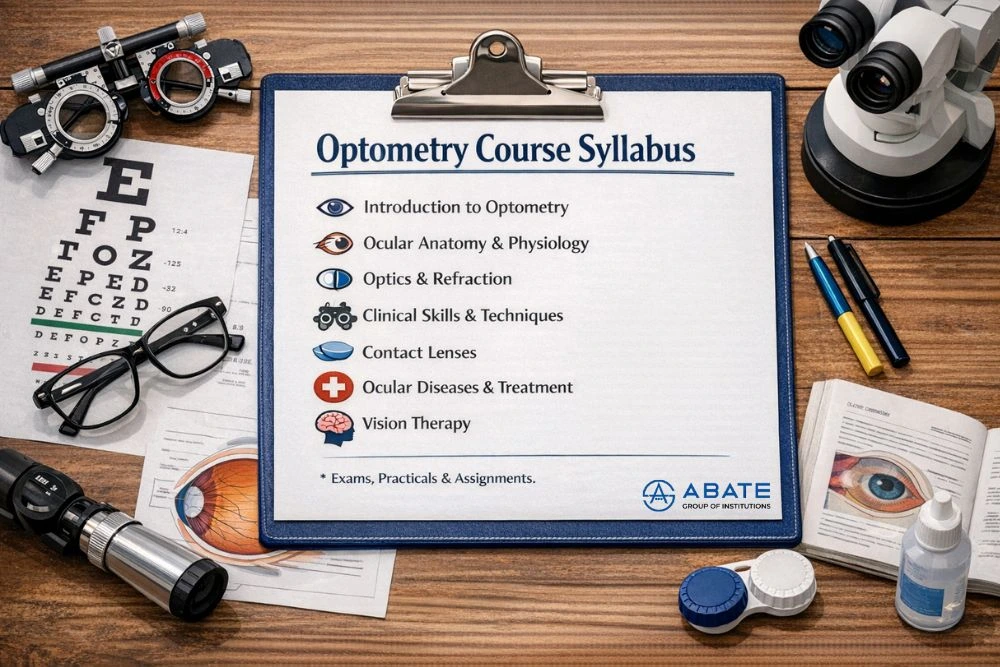How to become an optometrist in India?

Optometry is a vital healthcare profession focused on diagnosing, managing, and treating eye disorders and visual problems. Optometrists play a key role in primary eye care, from prescribing glasses and contact lenses to identifying serious eye conditions. With growing awareness of eye health and increasing screen time, the demand for skilled optometrists is on the rise.
If you’re passionate about eye care and envision a career in the medical field, becoming an optometrist could be the perfect path. Here's how to pursue this rewarding profession in India.
1. Understand the Role of an Optometrist
Optometrists are trained professionals who examine the eyes for vision defects, signs of injury, or eye disease. They prescribe corrective lenses, provide vision therapy, and refer patients to ophthalmologists for surgical care when needed. The profession combines healthcare knowledge, precision, and patient care.
Successful optometrists possess strong interpersonal skills, scientific aptitude, attention to detail, and the ability to think critically in clinical settings.
2. Complete Your Higher Secondary Education
To pursue optometry, you must first complete 10+2 (Higher Secondary Education) with a science stream, preferably with subjects like Physics, Chemistry, and Biology/Mathematics. A strong foundation in science helps in understanding the fundamentals of optometry during advanced studies.
3. Enroll in a Recognized Optometry Course
After 10+2, aspiring optometrists should enroll in a Bachelor of Science (B.Sc) in Optometry or an equivalent degree program. This three to four-year course covers anatomy, physiology, optics, ocular diseases, and clinical optometry.
Some institutions also offer Fellowship in Optometry or postgraduate diploma programs to help graduates deepen their clinical expertise and broaden their scope of practice.
When choosing optometry courses in Kerala, ensure they include both academic learning and clinical training for holistic development.
4. Gain Clinical Experience
Clinical training is essential for becoming a competent optometrist. It typically involves hands-on practice under the supervision of professionals in hospitals, eye clinics, and vision care centers. Students learn how to use diagnostic tools, perform eye examinations, and interact with patients.
Such exposure builds confidence, develops patient care skills, and prepares you for real-world clinical scenarios.
5. Stay Updated with Advancements
The field of optometry is constantly evolving with the introduction of new technologies and diagnostic tools. Staying updated with recent developments, attending workshops, and participating in continued education courses can enhance your knowledge and career prospects.
Reading industry journals and being part of optometry forums or networks also keeps you informed and connected.
6. Build a Career in Optometry
After completing your course, you can explore a range of career opportunities, such as:
-
Clinical Optometrist
-
Pediatric Optometrist
-
Vision Therapist
-
Optometry Consultant in hospitals or private clinics
-
Researcher or Lecturer in academic institutions
-
Entrepreneur in optical retail or eye care services
Optometrists can work in hospitals, eye clinics, optical stores, NGOs, and educational institutions, or start their own practice.
Final Thoughts
Becoming an optometrist is a fulfilling journey for those who value healthcare, patient interaction, and scientific application. With the right education, clinical experience, and commitment to lifelong learning, you can make a significant difference in people’s lives by preserving and enhancing their vision.
Abate Group of Institutions offers industry-relevant optometry programs with modern facilities, experienced faculty, and strong clinical exposure to support your journey from student to skilled professional. Take your first step toward a brighter, clearer future today.


